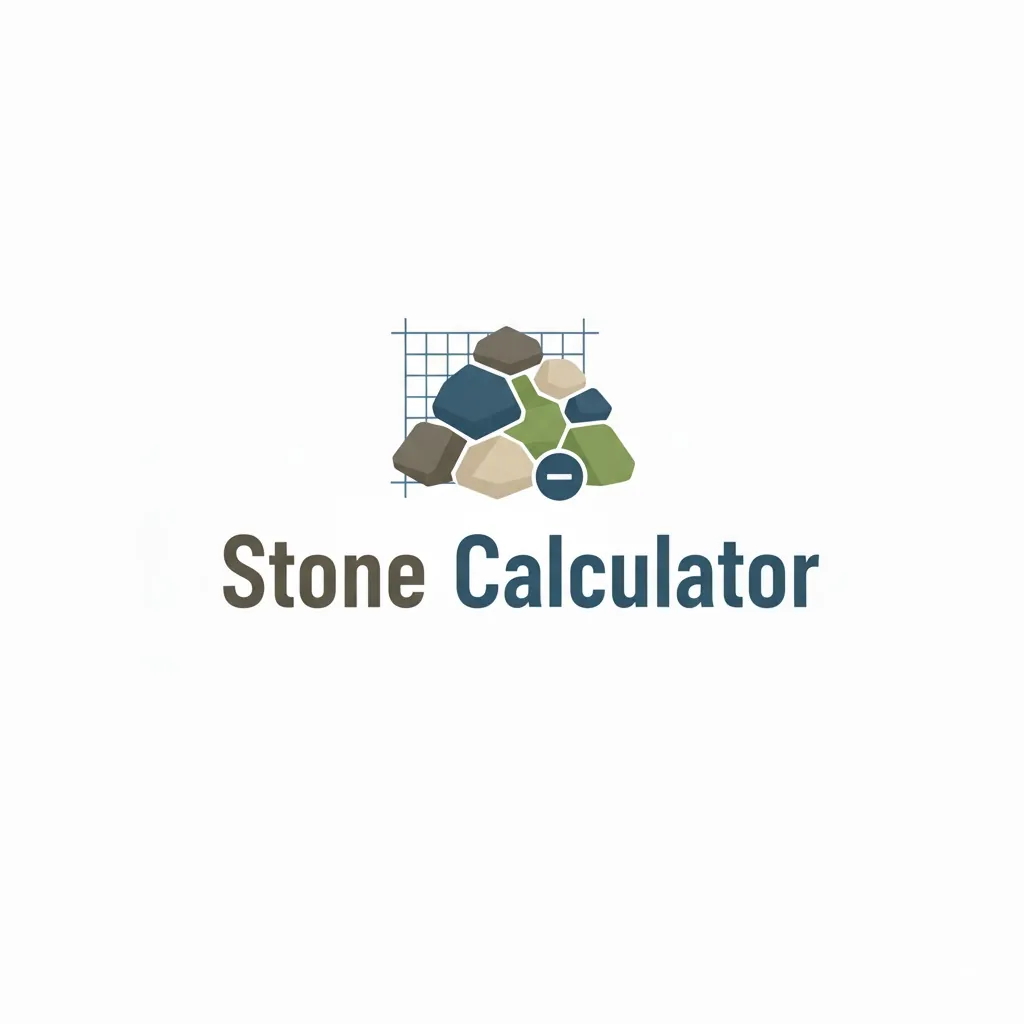The Core Formulas: From Area to Weight
Our calculator does the heavy lifting, but understanding the math empowers you. Here are the three key calculations that turn your measurements into an actionable order.
Step 1: Calculate Volume in Cubic Feet
Length (ft) × Width (ft) × Depth (ft)
This is the foundational measurement of your project's three-dimensional space.
Step 2: Convert to Cubic Yards
Cubic Feet ÷ 27
Since there are 27 cubic feet in one cubic yard, this conversion is essential for ordering.
Step 3: Convert to Tons
Cubic Yards × Material Density
This final step converts volume to weight, which is how most suppliers sell material.
Understanding Stone, Gravel & Project Depths
The type of material you choose and the depth you lay it are critical to your project's longevity and appearance. Not all stones are created equal—their weight and recommended use vary significantly.
Material Density: The Weight Factor
Density is the crucial link between volume and weight. Here are the standard densities our material comparison calculator uses to ensure accuracy:
- Crushed Stone: ~1.4 to 1.5 tons/yd³
- Gravel: ~1.3 to 1.4 tons/yd³
- River Rock: ~1.5 tons/yd³
- Sand: ~1.6 tons/yd³
Recommended Depths for Common Projects
Applying the correct depth is non-negotiable for a professional result.
- Driveways: A solid 4–6 inches is required to support vehicles without rutting.
- Walkways & Paths: A depth of 2–3 inches provides a stable, comfortable surface.
- Landscaping & Garden Beds: A decorative layer only needs to be 1–2 inches deep.
- Patios: A base of 3–4 inches ensures a level and safe recreational area.
Cost Estimation & Professional Tips
Estimating Your Budget
Our calculator can provide a cost estimate if you input a price per ton or per cubic yard. Remember that this is the material cost only. For a complete budget, you must also account for:
- Delivery Charges: These can be significant and vary by supplier and distance.
- Labor Costs: If you're not doing the work yourself.
- Tool & Equipment Rental: Such as a plate compactor for bases.
Pro Tip
Always order 5-10% more material than you calculate. This "waste factor" accounts for compaction, uneven ground, and minor spillage. A second delivery fee for a small amount of material is far more expensive than having a little extra on hand.
